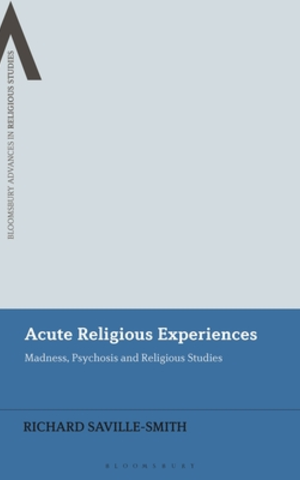
Acute Religious Experiences: Madness, Psychosis and Religious Studies
- Book
- 2023
- #Religion #PhilosophyofReligion
This book engages the problem of how, in the 21st century, we are to speak about experiences of the extraordinary/anomalous/extreme which occur on a transhistorical and transcultura...
Show More
Number of Pages: 288
ISBN: 1350272914
ISBN-13: 9781350272910